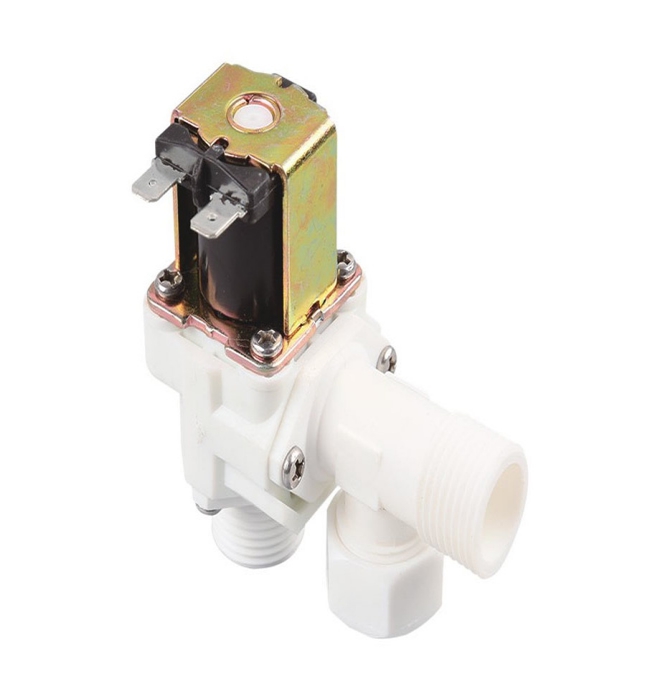Plastic Angle Solenoid Valve Supplier shares with you.
Solenoid valves are widely used in our production. We first have a preliminary understanding of solenoid valves. Solenoid valves are composed of electromagnetic coils and magnetic cores. They are valve bodies containing one or several holes. When the coil is energized or de-energized, the operation of the magnetic core will cause the fluid to pass through the valve body or be cut off to achieve the purpose of changing the direction of the fluid. The electromagnetic part of the solenoid valve is composed of a fixed iron core, a moving iron core, a coil and the like; the valve body part is composed of a slide valve core, a slide valve sleeve, a spring base and the like. The solenoid coil is directly mounted on the valve body, and the valve body is enclosed in a sealed tube, forming a simple and compact combination. The solenoid valves we commonly use in production include two-position three-way, two-position four-way, and two-position five-way. Let's talk about the meaning of the two positions first: for the solenoid valve, it is live and de-energized, and for the valve being controlled, it is open and close.

It consists of a valve body, a valve cover, an electromagnetic component, a spring, and a sealing structure. The sealing block at the bottom of the moving iron core closes the valve body air inlet by the pressure of the spring. After the power is turned on, the electromagnet is closed, and the sealing block with a spring on the upper part of the moving iron core closes the exhaust port, and the airflow enters the membrane head from the air intake port, which plays a controlling role. When the power is lost, the electromagnetic force disappears, the moving iron core leaves the fixed iron core under the action of the spring force, moves downward, opens the exhaust port, blocks the air inlet, the airflow of the membrane head is discharged through the exhaust port, and the diaphragm recovers the original position.
When a current passes through the coil, an excitation effect is generated, the fixed iron core attracts the moving iron core, the moving iron core drives the spool and compresses the spring, and changes the position of the spool, thereby changing the direction of the fluid. When the coil loses power, it relies on the elastic force of the spring to push the spool and push back the iron core to make the fluid flow in the original direction.
Our company provides Plastic Angle Solenoid Valve.